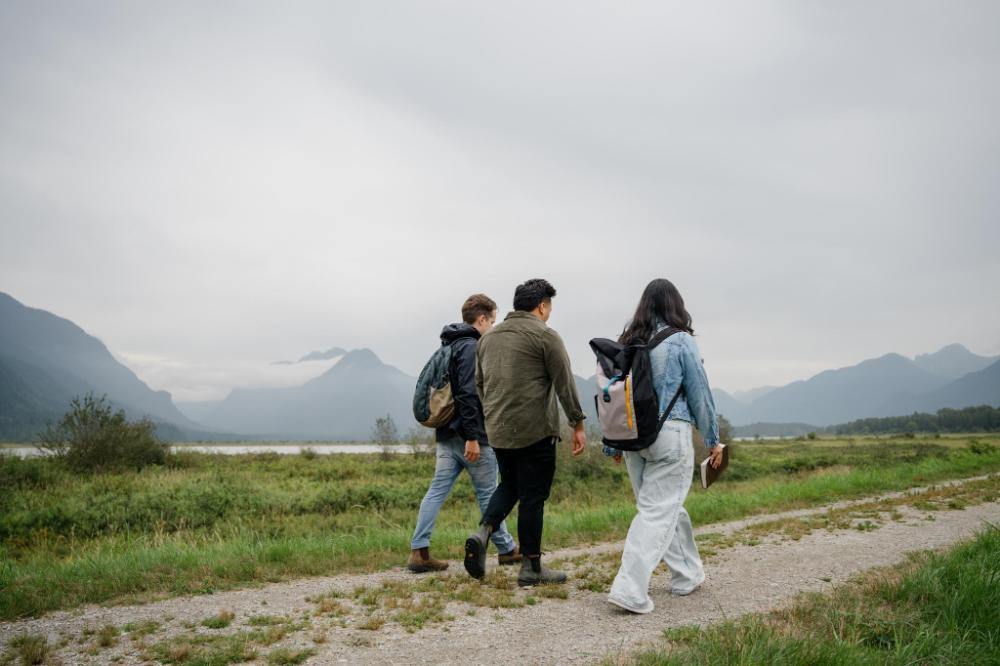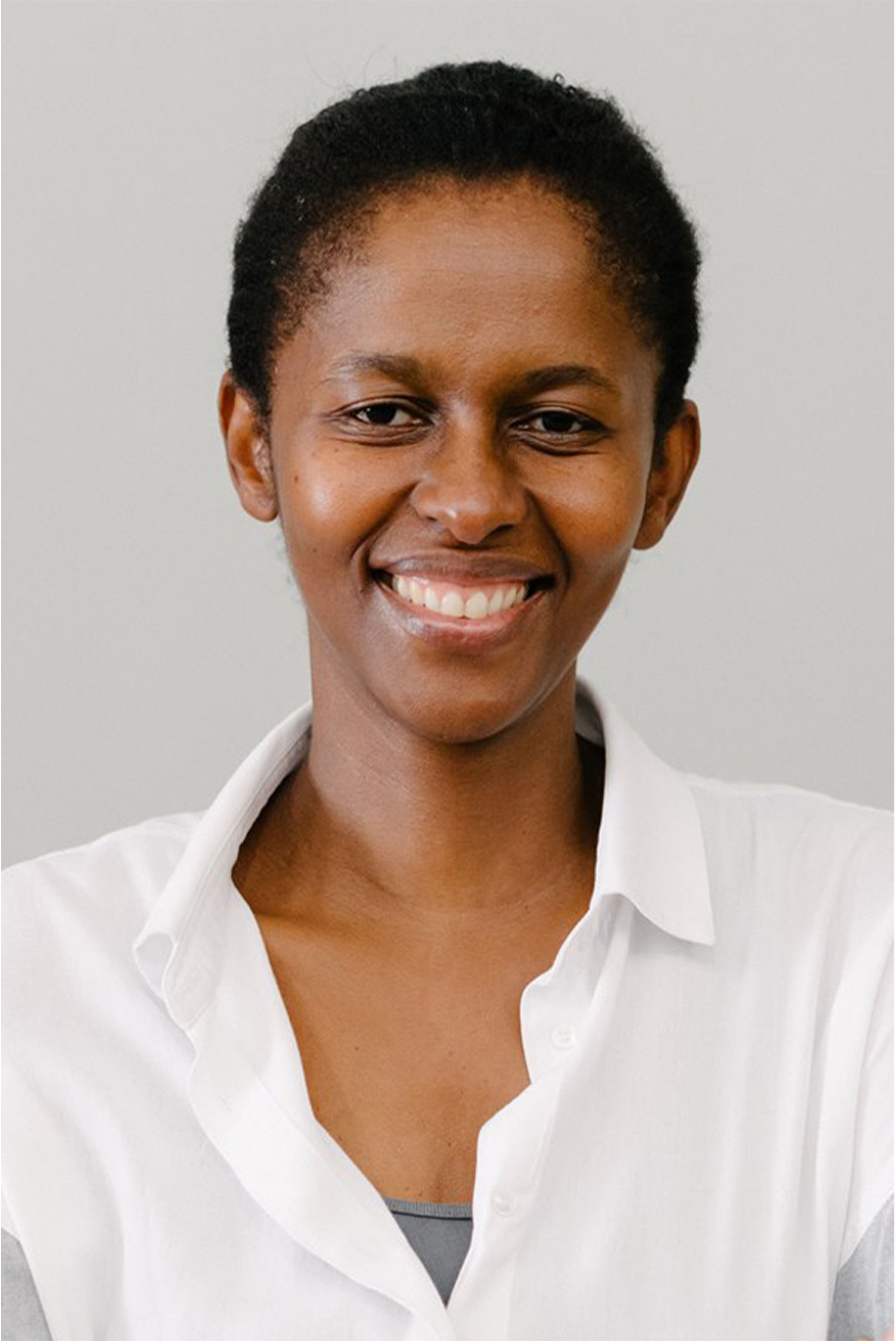Decades later there still is an uneasiness about identifying as a Christ-follower. Is this normal or am I just not the real deal? If there is a conventional path to Christianity, mine probably was not it. There was no childhood Sunday school or church youth group that drew me in. Young, idealistic, and stunned by grief, I struck up a conversation with the Creator. I had no relationship with him or thought he cared about me or my loss for that matter. So, what better place to offload the complicated emotions of grief? Was he not, after all, responsible for life’s entry and departure dates? My youthful arrogance reasoned that he needed to be told how his creation was doing—and it was not good. After many tears, angry ramblings, accusations—exhausted I stumbled into his loving embrace, acknowledging him not only as God, but heavenly Father. This clumsy start set the tone for our relationship—raw, questioning, intimate.
And yet. . . a random encounter, news item, clan gathering could resurface this unease. Today it was God’s Word. My prayer had been safe enough: “God, as I read the Bible, please, provide inspiration for this Vine piece!” Sure enough, God’s word delivered—though not quite as envisioned. In our country, the “inspiring” verse is often more associated with Dr. Hendrik Verwoerd than God’s Word. Referencing Joshua 9:21, Verwoerd, considered the architect of Apartheid, had declared that Black people are to be “hewers of wood and drawers of water.” His vision for the children of our country was unambiguous: “What is the use of teaching the Bantu (Black) child Mathematics when he cannot use it in practice? There is no place for him in the European (White) community above the level of certain forms of labour.” These were no mere words—“In 1982 the Apartheid government of South Africa spent an average of R1,211 on education for each White child (approximately $65.24 USD) and only R146 for each Black child (approximately $7.87 USD).”1 The hierarchy was not imagined. It was legislated.
“We live by stories.”2 I know the stories that shaped me initially, but I did not understand the grand story I was in until my time at Regent. A dominant narrative that shaped my early life was that of "apartness"—as Apartheid means in English. A view at odds with Jesus’s prayer for his followers to be one (John 17:20-23). Implicit in this "apartness" ideology was that some were inferior and others superior—though it was not hard to miss the lack of moral superiority in holding this worldview. For Verwoerd it seems, like the Gibeonites in Joshua 9:21, Black people could live but our status would always be one of labourers and never the children of God.
The Afrikaners (European Settlers) likened themselves to the Israelites held bondage in Egypt and liberated by God. To them, their bondage and subsequent freedom from the British made them a covenant people of God; and their migration from the Cape to the interior of 19th-century South Africa mirrored that of the Israelites’ journey through the wilderness into the Promised Land. As the Israelites had waged battles on their way to possess the land, so had Afrikaners with the Black people—conflicts they viewed as battles between believers and non-believers.3
Whatever their views, it’s clear where the different stories that shaped my life have clashed and caused wounds and this unease. This story of “apartness” is not unique to Afrikaners or South Africa—nor did it originate with us. There have been powers the world over that want to determine who is more human than another, whose humanity is the norm, whose humanity is supposed to be in service to another and whose privilege is on the back of the less human other.4 In countries where it’s not as overt as it was in ours, it’s often embedded in systems and almost difficult to see unless something else gives one the lens to look at it. While it’s never easy to discuss these matters, it can be cathartic, especially when one exchanges the "heavy yoke" placed upon some to prove the existence of something that has permeated everyone’s life. It’s helped that in the private, unfiltered and intimate conversations with God, he has seemed neither shocked or angry nor fatigued by my quest to make sense of the effects of this "apartness" ideology on my life and sometimes wobbly faith journey.
This human obsession with ranking people and keeping them apart messed with me. And the damage caused became apparent once a Christ follower in my 20s. The consequence of this "apartness" ideology was that I struggled to accept my new identity in Christ because for too long we had been treated as "less than" by the very same people who claimed this same heavenly Father. It did not help matters that there seemed scant evidence that he cared for our people’s plight. "This human obsession with ranking people and keeping them apart messed with me."
Although now confident he’s adopted me as his dearly loved child (Gal. 3:26; Rom. 8:15-16; Eph. 5:1), it can, unexpectedly, feel like I’m on the periphery looking in or worse, inserting myself in an already established cabal. It’s in these moments I wonder, what am I even doing here? Are those who claim we have been duped by our colonizers correct? It’s so much easier in my private and intimate conversations with God to fully embrace this new identity as his dearly loved child. But then those moments. . . a news item, an encounter, and the uneasiness re-surfaces. As Christ followers we share a heavenly Father. If that is true, we share a name and therefore identity. That is how it usually works, isn’t it? But. . . this is different. Is it? There must be other Christ followers who have struggled with this new identity. Perhaps for you it was not your country’s ways but another set of circumstances which tried to define and label you as “other"—and now it is difficult to truly believe or accept our co-identity in Christ.
“What happens when our human identity, our purpose, our freedom, and ability to be for one another, not at the expense of one another, gets hijacked and upended by alternative storylines within a broken world—by narratives that want to lay claim on our identity and our purpose?”It was at a Regent class that Dr. Cherith Fee Nordling asked, “What happens when our human identity, our purpose, our freedom, and ability to be for one another, not at the expense of one another, gets hijacked and upended by alternative storylines within a broken world—by narratives that want to lay claim on our identity and our purpose?”5 A question still worth pondering. Dr. Emmanuel Katongole and Jonathan Wilson-Hargrow’s words are a reminder of what is true about us: “Christianity is meant to shape a new identity within us by creating a sense of “we”—a new community that defies our usual categories of anthropology.”6 Unfortunately, we Christ followers also form allegiance according to nationality, race, or ethnicity. My sense, however, is that some of us are tired of the duplicity and desire to live the kind of life where what we say we believe and our daily reality converge; and we finally experience an inner rest that comes from living in harmony with God, ourselves, and others. There’s no easy or quick path, but it is worth discovering where the dissonance lies.
The competing claims in my life cannot all be true. The loudest, most entrenched story that feels normal because I learnt it early and which my muscle memory responds to because I know it so well, is not necessarily the truest. Reclaiming my place in the biblical story for healing and freedom has been challenging. Yet, the quest to disempower the narratives that are false but keep claiming to be truer continues—so that I can hear God’s grand story calling me back home. As I examine my story, my hope is you will be motivated to re-look at the stories that shaped you. The stories that formed you as children and you now believe that is the “normal” story of the world, and you move through life that way—often feeling wounded and perhaps even wounding others unknowingly.
“Our understanding of the beginning of any story deeply influences our reading of the entire story.”7 In its introductory words about humans, God’s story declares that all of us are created in his image, his likeness (Gen. 1:26). A radical thought! It was Dr. Jeff Greenman who, in a Theology class discussion, said, “we are trying to rewire our ‘house’ to make sure all circuits are connecting, and we have a deep and coherent sense of how the Christian story reframes all of life.” My hope is that in time there will be less and less of the disruptive and harmful "sparks" from the short circuits originating from my old and somewhat damaged wiring.

